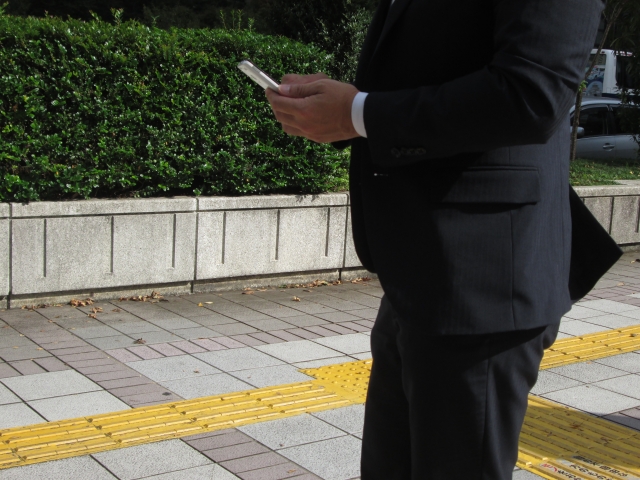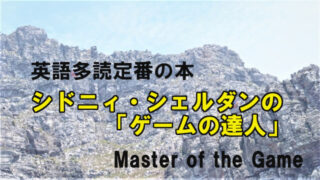歩きスマホを英語で言うと?例文も|英語記事和訳

(2021.7.21)
1.はじめに~歩きスマホの英語表現
早速ですが、表題の「歩きスマホ」の英語は、use smartphone while walkingです。例文、Don’t use your smartphone while walkingで、「歩きスマホをしてはいけない」です。
2.英語記事抜粋和訳~日本の歩きスマホ禁止条例、浸透せず
歩きスマホに関する興味深いニュース記事を抜粋して以下に和訳します。いくつかの日本の地方自治体レベルで歩きスマホ禁止条例が出されたのですが、なかなか定着には至らない様です。
引用元:The Japan News by The Yomiuri Shimbun
”Refraining from phone use while walking hasn’t sunk into society”(July 19, 2021) by Yuri Ishihama and Mayumi Kamizono
https://the-japan-news.com/news/article/0007563483
Refraining from phone use while walking hasn’t sunk into society
歩きスマホ禁止は社会に浸透せず
✅refrain from ~:~をやめてもらう
※電車内のアナウンスでも、Please refrain from talking on the phone.というのがよく流れています。
Six months have passed since an ordinance that bans using smartphones and other kinds of mobile phones while walking on streets or in parks went into force in Arakawa Ward, Tokyo.
Similar ordinances were enforced in Yamato, Kanagawa Prefecture, and Adachi Ward, Tokyo, in July last year. As the city of Ikeda, Osaka Prefecture, followed suit on July 1, the move is spreading throughout the country.東京都荒川区で、路上や公園での歩きスマホを禁止する条例が施行されてから6ヶ月が経った。
同様の条例は神奈川県の大和市、東京都足立区でも昨年7月に発令された。大阪府の池田市も7月1日それに続いて施行し、日本中にこの動きが広まった。
✅ordinance:条例
✅go into force:施行される
✅follow suit:先例に従う
However, the ordinances include no penalties, and efforts are focused simply on raising awareness. The question now is whether the ordinances can help reduce the use of phones while walking amid a growing number of accidents involving the practice.
だが条例は罰則がなく、単に(この問題に対する)認知を高めることに焦点があてられた。ここで疑問なのは、歩きスマホの習慣に絡む事故件数が増える中で、条例が歩きスマホを減らすことに役立ったのかどうかということである。
✅amid:~のさなかで
※amid pandemicで、「パンデミックのさなかで」のような表現を最近ニュースなどでよく見かけます。
A 33-year-old woman working in the design business said she didn’t know about the ordinance. “I often walk around looking at a map app to find the place I want to go. Since it has become the norm, I can’t stop walking around while using my phone unless I get fined,” she said.
デザイン系の仕事をしている33才の女性は、この条例を知らなかったそうで、「行きたい場所を見つけるために地図アプリを見ながらよく歩きます。(歩きスマホは)一般的な行動になっているから、罰金を取られない限りスマホを見ながら歩くことをやめることは出来ません」と言った。
✅norm:標準
According to the Tokyo Fire Department, in the five years up to 2019, 177 people were taken to hospitals due to accidents related to using phones while walking.
They included a case in which a person fell from a train station platform onto the tracks and injured their back. Another person fell and was injured after failing to notice a step.東京消防庁によると、2019年までの5年間で177人が歩きスマホに関連する事故で病院に搬送された。中には電車のプラットフォームから線路に落下して背中を負傷した人のケースもある。さらにもう一人は階段で転げ落ちて怪我をした。
Katsumi Tokuda, a professor of barrier-free theory at the University of Tsukuba, said: “If accidents involving other people occur frequently, I think it would be a good idea to consider an ordinance with penalties for certain places where people’s lives can be at stake, such as train station platforms. It is important for local governments to raise awareness by calling for more specific measures, such as stopping at the side of the road or near a wall when using a smartphone, rather than simply repeating, ‘Don’t use your phone while walking.’”
筑波大学のバリアフリー理論を教えている徳田克己教授の発言「もし他人を巻き込む事故が頻発するなら、罰則付きの条例を検討するのも良いと私は思います。命が危険にさらされる場所、例えば電車の駅のプラットフォームなどでです。地方政府にとって、より具体的な策を出す様声をあげて問題の認知を高めることが重要です。ただ単に歩きスマホをするな、と繰り返し言うだけでなく、スマホを使うときは脇道や壁際で立ち止まる様に呼びかけるなどの策(が重要)です。」
✅at stake:危機にさらされる
✅call for~:声をあげて~を求める
3.さいごに
本記事が英語学習のお役に立てれば幸いです。
おわり


















[…] […]